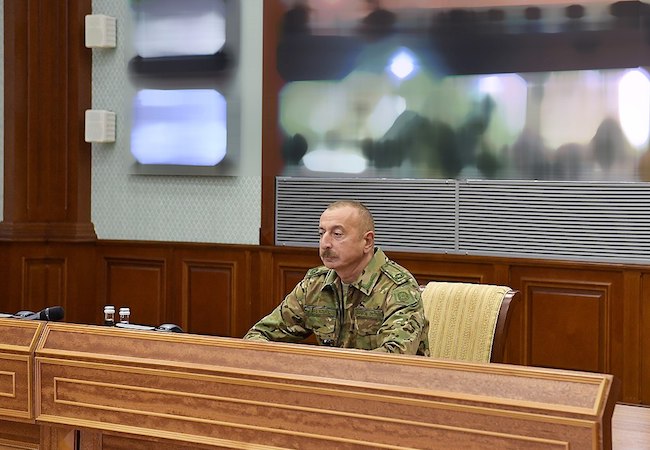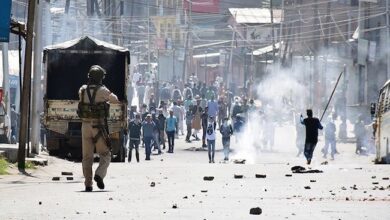Armenia vs. Azerbaijan: Who crossed the escalation threshold first?

Armenia claims that Azerbaijan dangerously crossed the escalation threshold of the Nagorno-Karabakh conflict by attacking military units within its internationally recognized territory, but the truth is that it’s Yerevan which is the party that’s actually guilty of doing this first. Armenia’s missile strike on Azerbaijan’s second-largest city of Ganja over the weekend grossly violated the Russian-mediated ceasefire. Azerbaijan later responded by destroying missile launchers inside Armenia which were preparing to repeat this war crime.
Azerbaijan can make a powerful case that it was exercising its self-defense rights through Article 51 of the UN Charter by preemptively attacking foreign military units which posed an imminent threat to its people. Armenia, however, believes that this development might trigger Russia’s conventional military intervention into the conflict in its support due to the mutual defense obligations that the two share through the CSTO. Since Moscow hasn’t indicated any willingness to do this, it can be assumed that it doesn’t share Yerevan’s stance.
What Russian Foreign Minister Lavrov recently suggested, however, was the deployment of Russian peacekeepers to Nagorno-Karabakh and the seven surrounding districts under Armenian occupation pending both warring parties’ approval. This can be interpreted as a balanced approach by the conflict’s most important regional stakeholder. Continuing the war risks worsening security in Russia’s Northern Caucasus, especially since its spy chief Naryshkin claims that foreign militants have been transferred to the conflict zone.
Azerbaijan and Turkey have both vehemently denied reports that they recruited such fighters, but Russia nevertheless insists that they’re present there. Whatever the truth may be, Lavrov’s peacekeeper proposal represents Russia’s interest in playing a greater role in resolving this long-running conflict driven by what regards as its pressing national security interests. Keeping in mind that Russia hasn’t hinted at a conventional intervention in Armenia’s support through the CSTO, Moscow might believe that Yerevan escalated the war.
After all, if Russia was certain that Azerbaijan had aggressively launched an unprovoked attack against Armenia like Yerevan claims, then Moscow would have probably activated the CSTO’s mutual defense clause or at least publicly threatened to do so unless Baku promised never to do such a thing again. This suggests that Russia places some degree of blame for what happened on Armenia but might feel uncomfortable publicly saying as much due to its political, economic, and military interests in the country.
Nevertheless, Russia’s decision to not discuss the CSTO’s mutual defense clause after the latest development can in and of itself be interpreted as an expression of its evolving policy towards the conflict. This absence of action lends credibility to Azerbaijan’s claim that it was preemptively defending itself in accordance with international law from Armenia’s imminent aggression. Should this interpretation be accurate, then it would have important consequences for Armenia, both in terms of its military policy and relations with Russia.
Without being able to count on unconditional Russian military support for its conduct in this conflict, Armenia might become reluctant to stage similar provocations in the future since it’s unsure whether it can exploit such actions to drag Russia deeper into the conflict. The more that Armenia possibly perceives Russia to be a neutral actor in the war, the less likely it might be to agree to Lavrov’s peacekeeper proposal since it might fear that the deployment of Russian troops might eventually lead to Moscow compelling it to abide by the UNSC Resolutions.
If Armenia continues to break international law by occupying universally recognized Azerbaijani territory and launching attacks against its neighbor’s civilians (whether or not those attacks are carried out from within Armenia’s borders), then it’ll only deepen the international perception that Armenia has become a rogue state. Russia might then be pressured by the global community to rein in its wayward ally, which could in turn lead to Moscow more actively trying to get Yerevan to cease its illegal actions and finally comply with international law.




